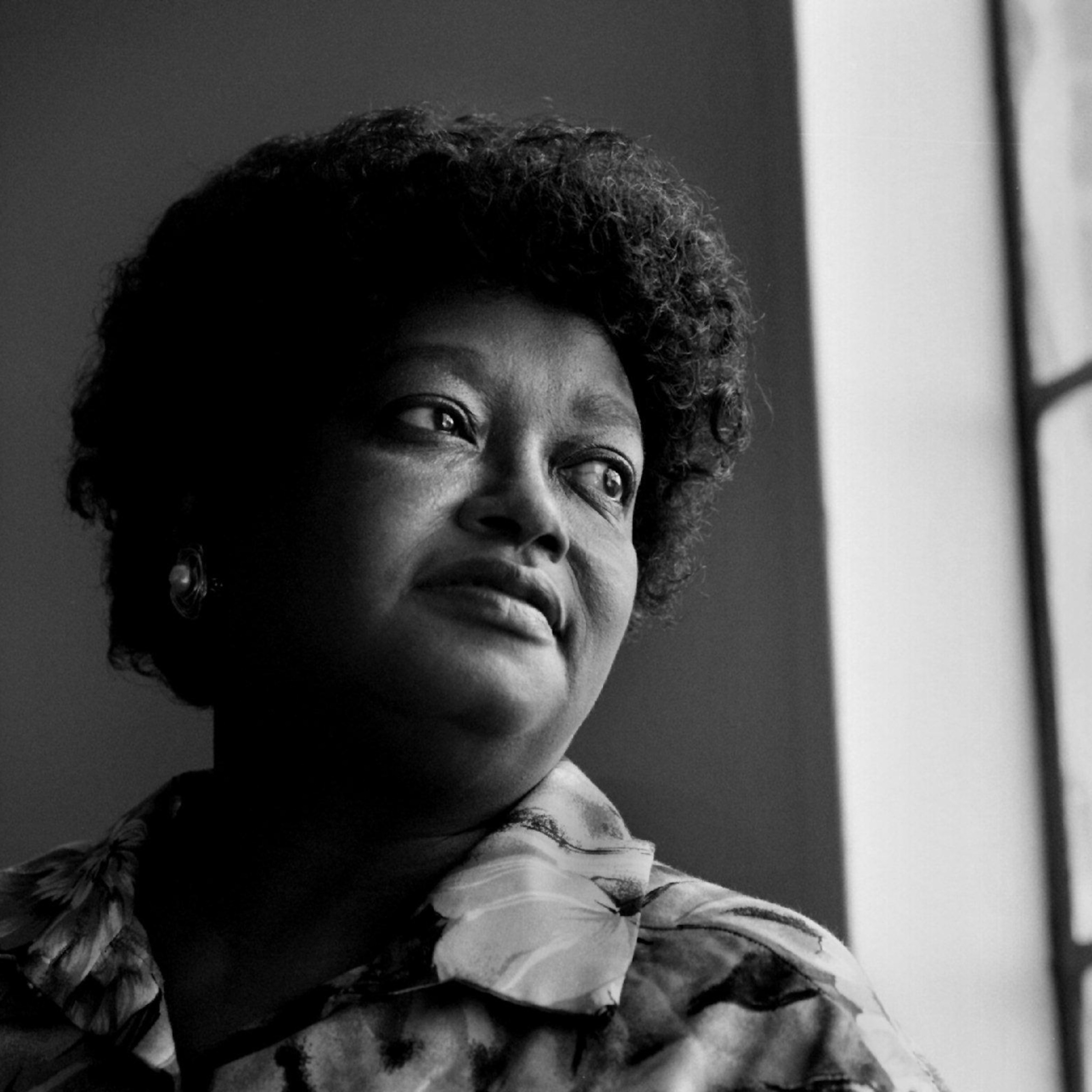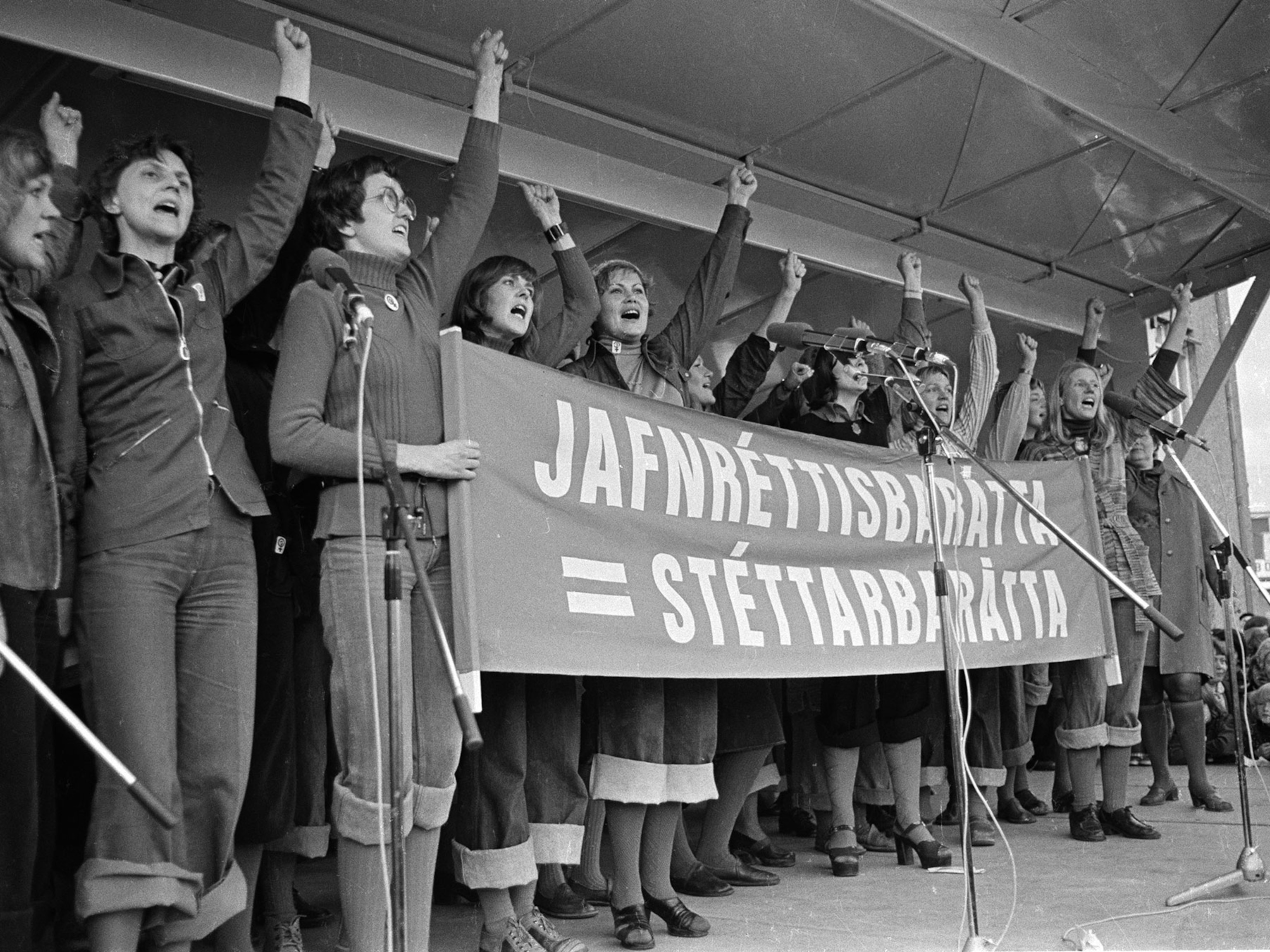Pay inequity is persistent, shameful—and still widely tolerated
For each dollar a man is paid in the United States, a woman is paid less, sometimes half as much. Why haven’t we closed the gap?
My mother upheld a steely work ethic. Laboring in the fields, and laboring through 11 live births—news that made our local East Los Angeles newspaper—how could she not? She had grown up in L.A. during the violent anti-Mexican deportation raids of the 1920s and ’30s, when massive sweeps herded immigrants and citizens alike. And although she believed in marriage, she became bitterly resentful of her financial dependence on my father. Thus she was determined to prevent her six daughters, us girls, from falling into the same predicaments. With the capricious raids always reminding her how “disposable” we were as Latinas, she strove to create a female tribe unafraid of hard work, a loving commune unto ourselves.
At home, there was no expectation of charity. We worked for every need outside of the shelter and food provided by our American-born parents; we had jobs even while going to school, fueled by an unshakable resolve for a better future. Only later did it occur to me that our labor was defined by our gendered, working-class brown bodies, whether in the arduous responsibility of keeping a large household functioning or the backbreaking tyrannies of the California fields where we picked grapes in the summer. Our labor was measured in units of sweat and muscle, visceral, visible evidence of what my mother understood as honest work.
My years in college introduced me to another mode of labor, one that manifested in the sacred privilege Toni Morrison once called being in companionship with your own mind. That’s when I began to understand how some kinds of work—and some kinds of workers—were perceived as less than others. It was my good fortune to attend a college established by an order of Roman Catholic nuns who were feminists, activist teachers, and staunch humanitarians. Many of them chose to renounce their vows and form a nonprofit lay community rather than follow the strict dictates of the patriarchal cardinal archbishop of Los Angeles. Their fearless actions widened my understandings of oppression and loving resistance.
I received a college diploma, the first woman in our family to do so, and returned home to seek honest work that would be deserving of equitable pay. After months of dismal interview failures—I was not skilled in clerical work, cashier work, or nursing, jobs held by my older sisters—and before I secured an unlikely position bottling beer on a Pabst brewery assembly line, I had enrolled in a creative writing class at Cal State L.A.
Every time I opened my spiral notebook at our dining table to journal an assignment or write a poem, it disturbed my mother. I was unemployed, and it bothered her to see me sitting and staring into space. She would ask me to go water the peach tree or sweep the porches or wash the dinner dishes in the sink, chores that could surely have waited at the very least another half hour. It wasn’t until one of my short stories won first prize in a university literary contest, a whopping $25, that the labor paradigm shifted. When my mother approached me with another housekeeping duty, I handed her the check. “Where did you get this?” she asked, because to us in 1976, this amount might as well have been $250. “I got it for my writing,” I replied. She slipped the check in her apron pocket and left the room, returning with a cup of coffee for me.
That check helped my mother believe my talent could enable me to earn a living and take care of myself, and her confidence helped me aspire to a writing career yet to be imagined. My sisters, in turn, gave me something else: a sense of self-worth, as it would be my job to tell their stories. All I had to do was get past our country’s walls—persistent prejudicial walls, literal and figurative border walls constructed to keep me from fully realizing my value. I realized then that I couldn’t not write.
I write because I want us to think about where we place value, and how systemic gender and racial discrimination promotes a devaluation of people and their labor. There is evidence of that in the pay gap data. Even when analysts control for factors that are known to influence pay—such as race, industry, education, and work experience—they can’t explain what causes more than one-third of the gap between men’s and women’s pay. But how else to interpret the unexplained portion of the gender pay gap other than discrimination?
U.S. history is rooted in colonization, genocide of Indigenous peoples, and chattel slavery, which have always maintained the subordination of women (here I include cis, trans, genderfluid—all women). Without bravely coming to terms with our history’s residue of violent discrimination, we will never fully understand pay gaps and the persistence of this shameful inequality.
Although women’s labor was crucial in both the private sphere of home and public sphere of community, during the industrial revolution it became devalued because it did not produce satisfactory profit, according to anti-racist feminist activist Angela Davis. Treating women’s work as inferior kept it cheap and gave rise to a systemic erosion of respect that justified pay inequity based on gender, race, or both.
Law and sociology professor Dorothy Roberts explains how the separation of women’s housework into two grades, the spiritual and the menial, creates a racialized hierarchy of women’s labor. Supervision of the household and guiding children in their moral education is the spiritual work that came to be the province of privileged white women. The taxing and tedious menial housework—less valued because it is deemed to require less skill and intellect—is associated with immigrants and women of color. To this day, data show that “menial” workers continue to be disproportionately women of color.
As a Chicana writer, I needed to understand how discriminatory practices worked so that I could tear them down one word at a time, erase the stereotypes about us. It was an act of love between my mother and me; in accepting her cup of coffee, I made a soulful commitment to make our struggles fully visible.
Often working in the shadows of communities, Latinas accept low wages and the least desirable jobs. Most receive no health insurance, no sick or vacation time off, and certainly no childcare. (Why women have suffered more financially during the pandemic)
The National Farm Worker Ministry considers women farmworkers “arguably the most exploited workers in this country, even more vulnerable than male farmworkers.” So in my first novel, Under the Feet of Jesus, I wrote about the lives of Latina farmworkers, my hermanas everywhere—I never forgot their plight because I had been one of them.
Given their varying degrees of citizenship—a large number undocumented—there is little recourse for Latina farmworkers who are mistreated and fear losing their jobs. They endure the grueling circumstances of picking, planting, pruning, heat stress, and exposure to pesticides, as well as what Dolores Huerta, co-founding member of the United Farm Workers, has called “an epidemic” of sexual assault and harassment.
Farm-working Latinas are building collectives like Alianza Nacional de Campesinas, which advocates for immigration reform and human rights. But their fight for wage equality will be won only if Me Too, Black Lives Matter, and LGBTQ movements are also successful in fostering racial and gender equality. First on the agenda: a reminder that these workers are not expendable but an essential component of our everyday existence. The beans for our morning coffee and the vegetables for our dinner were most likely harvested by a farm-working Latina. They help feed a nation and a world. Even through a pandemic.
When my children were young, I hung a poster in our house that announced, “Women Hold Up Half the Sky.” It’s a poetic image meant to inspire, but sometimes I reflect on the weight of the world and how that strenuous task is exhausting for working-class Latinas like my mother, my sisters, all of us in my community. The image implies a necessary defiance against the rules of gravity, a battle we fight every minute against the insufficient paychecks that seek to mark us as somehow less than human.
Farm-working Latinas are owed pathways to citizenship—and, with all women, fair pay and recognition. Haven’t we worked hard enough?
Helena María Viramontes is the author, most recently, of Their Dogs Came With Them, a novel. She is Distinguished Professor of Arts and Sciences in English at Cornell University.
This story appears in the October 2021 issue of National Geographic magazine.







